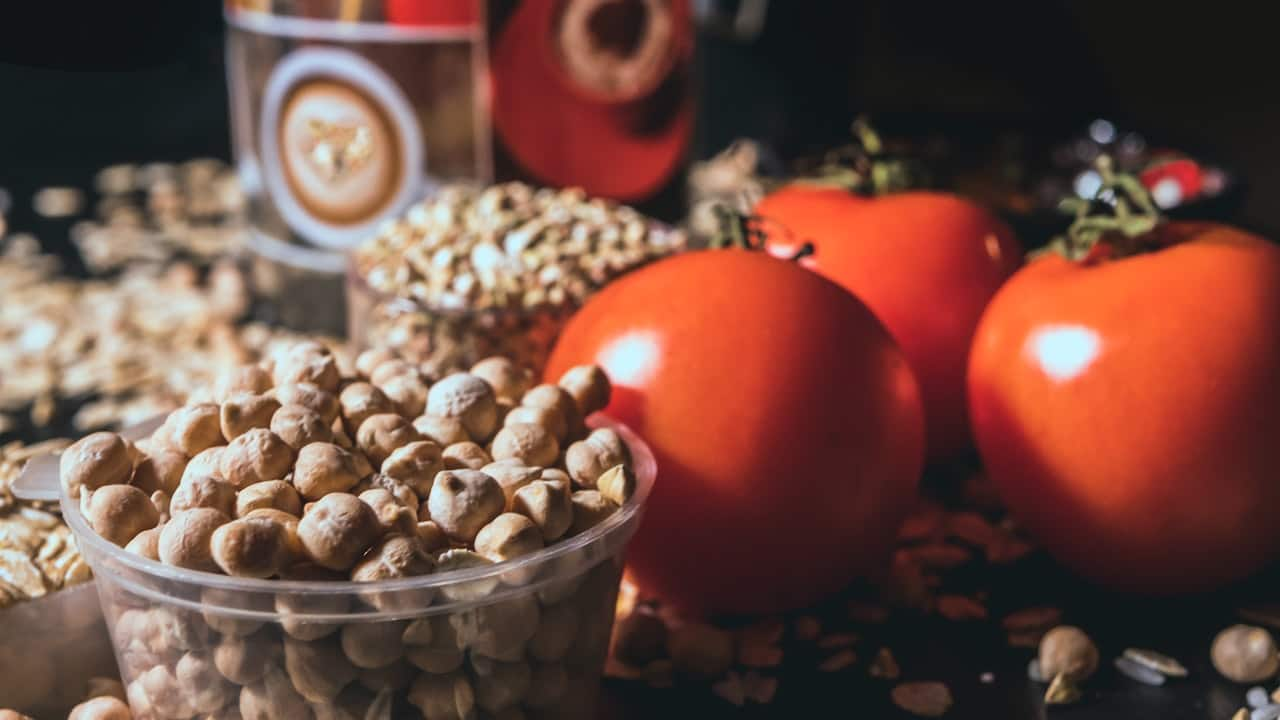



In an age that celebrates convenience, the essence of nutritious eating has become increasingly obscure. Walk into any supermarket, and you’ll find aisle upon aisle of breakfast cereals, malt drinks, and various grain-based products. Amid the jumble of jargon, one truth stands undisputed: whole grains are superior to refined grains. But with convenience, have we lost the inherent wisdom of our ancestors? Let’s talk about the difference between consuming whole and refined grains, the fading tradition of fermented foods, and how commercial processing is not always our friend.
 (Photo by Michel Burrows via Pexels)
(Photo by Michel Burrows via Pexels)
Nutritional Profile: Whole Grain Vs. Refined Grain
Whole grains are powerhouse foods packed with essential vitamins, minerals, and fibres. They contain B vitamins, iron, magnesium, and selenium. These nutrients play pivotal roles in energy metabolism, oxygen transportation, and the functioning of antioxidants in our body. As the name suggests, whole grains are fundamentally seeds with three key parts: the bran, the germ, and the endosperm. These three layers are brimming with nutrients, and their complete structure translates to more nutritional value for us. Studies have linked whole-grain consumption to a lower risk of heart disease, type 2 diabetes, and certain types of cancer. They also promote gut health, thanks to the healthy dose of fibre that feeds beneficial bacteria in our gut.
Conversely, refined grains have their bran and germ stripped away during the milling process, leaving only the starchy endosperm. This refinement significantly reduces fibre, vitamins, and minerals, making them easy to digest – sometimes too easy. This trait of refined grain being very easily digestible can lead to unsustained fullness. Some refined grain products like white flour and white rice are artificially fortified with vitamins to compensate partially. Yet, these enhancements cannot fully replace the natural synergy of nutrients found in whole foods.
Dangers of Not Consuming Whole Grains
The effects of side-lining whole grains are manifold. For one, a diet low in whole grains but high in refined grains can lead to many health issues. For example, when the body has to convert the starch in refined grains into usable energy, it has to tap into its reserves of vitamin B and minerals, thus depleting them. It is not a problem with whole grains because while they contain starch, the bran and germ layers contain all the nutrients required to use the starch in the body as energy. So our body does not have to use its reserves of vitamins and minerals.
Over time, consuming a diet rich in refined grains can lead to nutrient deficiencies and associated health issues such as fatigue, weakened immune response, and poor skin health. Additionally, diets rich in refined grains and low in whole grains have been linked to obesity, digestive problems, and an elevated risk of chronic diseases, such as heart disease, type 2 diabetes, and cancer. Furthermore, refined grains can cause rapid spikes in blood sugar levels, leading to energy crashes, hunger pangs and overeating.
The Cost of Convenience
Our love affair with convenience also extends to the realm of breakfast cereals and snacks. We often reach for puffed, popped, and corn-flaked versions of grains, attracted by the promise of whole grains but oblivious to the modification that these products undergo. The high-pressure and high-temperature treatments increase their shelf life and improve their texture and crunchiness but simultaneously modify the fat content, such as the essential fats in whole grains, namely omega-6 polyunsaturated fats, that are susceptible to heat and pressure convert into cardiotoxic trans fats and other modifications to the grain’s nutritional properties, often to our detriment. With the added preservatives and sugars, these commercial choices might just be doing more harm than good. We’re trading-in our long-term health for short-term convenience by choosing these modified grains. Consuming these modified whole grains doesn’t provide the same benefits as consuming intact grains, and in some cases, they can contribute to adverse health outcomes like obesity and high cholesterol.
 It’s time to shift back to a diet that honours the nutritional integrity of our food and, in turn, honours our bodies. (Photo by Mike via Pexels)
It’s time to shift back to a diet that honours the nutritional integrity of our food and, in turn, honours our bodies. (Photo by Mike via Pexels)
Fermentation: Our Lost Heritage
In our blind race towards newer food trends, we’ve left behind a prized Indian tradition: the consumption of fermented foods. Sourdough bread, for instance, is easier to digest, has a lower glycemic index, and can help you absorb more nutrients from your food than regular bread.
Fermented foods like idlis, dosas, and dhoklas are not just gastronomic delights but also carry a wealth of health benefits. They introduce beneficial probiotics to our gut, aiding digestion and boosting immunity. These foods, often made from a blend of whole grains and pulses, are an exemplary fusion of taste and health.
Fermentation involves controlled microbial growth, converting carbohydrates into alcohol and acid, an anaerobic process carried out by microorganisms. In India, lacto-fermentation using lactic acid bacteria (LAB) is commonly used for staples like rice and wheat. This process reduces anti-nutrient compounds such as phytates and oxalates in grains, millet, legumes, and seeds.
Research shows that phytates and oxalates hinder the absorption of essential dietary vitamins and minerals like vitamin B, calcium, zinc and iron. Fermentation neutralizes these compounds, enabling better mineral absorption and reducing deficiency risks. Another traditional method, germination or sprouting, serves a similar purpose.
Lacto-fermentation enhances beneficial bacteria in food, promoting gut health. A robust gut microbiota aids nutrient absorption and bolsters the immune system, cementing the importance of fermented foods for overall well-being.
Also read: 5 millet soup recipes worth cosying up to this monsoon
How to eat more whole grains
Indian culinary traditions are replete with fermented foods. Southern staples like dosa and idli are made from fermented rice and lentils - the fermentation boosts their nutrient absorbability. North Indian foods like the fermented black-carrot beverage Kanji and Dhokla, made from fermented rice and chickpeas, are tasty and health-enhancing. Other foods such as pickles and 'chaas' (buttermilk) also benefit from fermentation, both nutritionally and in terms of shelf life.
Fermented foods can be seamlessly integrated into daily meals. Begin with idli or dosa for breakfast, accompany meals with fermented pickles or chaas, and perhaps indulge in dhokla for snacks.
For those looking to experiment at home, grains can be soaked in warm water with added lemon juice, apple cider vinegar or leftover whey when you make paneer at home. The soaking period ranges from 8-48 hours, depending on the temperature.
Furthermore, germinating grains like moong dal and chickpeas enhances their nutritional content, making proteins and other nutrients easier to digest. For instance, millets, a mainstay in India, when fermented, exhibit increased protein digestibility and vitamin B content. Lacto-fermentation typically involves soaking grains in water and a lactic acid starter for 1-3 days until fermentation is evident.
Malt Drinks: To Consume or Not?
Malt drinks are popular grain-based beverages, often marketed as health drinks. Malt drinks are beverages derived from barley which has been allowed to germinate (or sprout) before being dried. This germination process produces enzymes that convert the grain’s starches into sugars, which can then be fermented by yeast to produce alcohol. Non-alcoholic malt drinks, commonly found in supermarkets, are essentially this malt base with the alcohol removed.
Malt drinks are a product of fermented grains and thus have some benefits of fermented foods, such as being rich in B vitamins. However, the manufacturing process often involves the addition of sugar, artificial flavours, and preservatives. If you choose to consume malt drinks, it’s advisable to check the label for added ingredients and opt for versions with less sugar and fewer additives. Consuming them in moderation and as part of a balanced diet is the key.
The solution is simple: Incorporate more whole grains and fermented foods into your diet, and reduce your intake of refined grains and excessively processed grain-based products. While the world of convenience offers quick fixes, it’s essential to recognize the long-term implications of our choices. It’s time to shift back to a diet that honours the nutritional integrity of our food and, in turn, honours our bodies. Remember, it’s not about vilifying refined grains or modern foods but about finding a balance that serves our palate and health. The decision to choose whole grains, fermented foods, and minimally processed products over ultra-processed convenient options is indeed a valuable investment in our health. After all, in the hustle and bustle of modern life, the ancient wisdom of our ancestors still holds the key to a healthier tomorrow.
Also read: 6 ways to beat high cholesterol in your 30s and 40s
Discover the latest Business News, Sensex, and Nifty updates. Obtain Personal Finance insights, tax queries, and expert opinions on Moneycontrol or download the Moneycontrol App to stay updated!
Find the best of Al News in one place, specially curated for you every weekend.
Stay on top of the latest tech trends and biggest startup news.